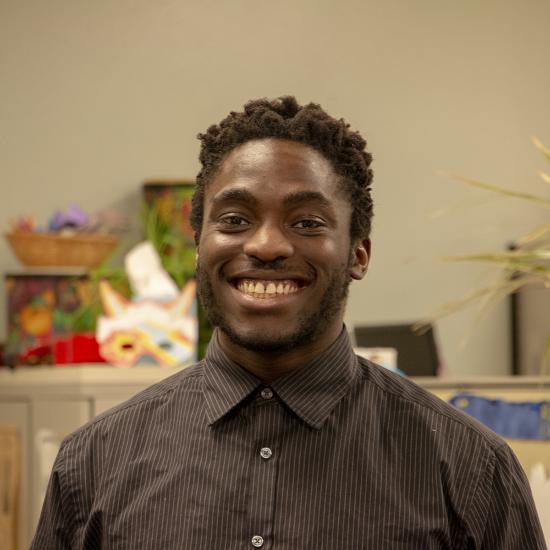Volunteer Uses History and Cultural Experience to Coach Youth Change Makers
Youth are the foundation for change. That’s one reason Adewale (Philip) Adenodi volunteers for Wilder’s Youth Leadership Initiative, a multicultural program that encourages high school students to think about how they want to change the world and helps them develop skills to take action on issues they are passionate about.
“It’s great to be part of a program that reminds youth that they have the agency to change things,” Philip says.
Coaching Youth Using Personal and Professional Experience
Philip is one of more than 20 volunteers who support participants from grades 9-12 in the program, also known as YLI. He serves as a coach for a group of youth who have chosen to focus on the historical eras of people throughout the African Diaspora. He is also a coach for another group who is creating a community action project focused on cultural awareness and inclusion.
Philip, who is pursuing a career as a history and social studies teacher, discovered YLI during his senior year at Hamline University. He was involved with the Community Assemblies of Minnesota project, which engaged residents to develop recommendations for electoral reform for their local governments. Wilder was involved with the project, and Nou Yang, now Wilder’s Senior Director of Community Leadership Programs, invited Philip and other project volunteers to participate in cultural sessions at YLI.
A Place for Youth to Feel Accepted for Who They Are
During cultural sessions, youth explore their own culture and how heritage affects leadership styles and personal development. They also share and learn about others’ experiences. It’s one aspect of YLI’s emphasis on helping youth understand themselves and others. Philip says this emphasis helps create a space in which participants and youth leaders feel accepted for who they are.
“As a Black person, as a Nigerian-American, I have felt for much of my life and still now that I have to give up a piece of myself to be accepted, acknowledged, or taken seriously in certain spaces,” Philip says. “When I look at the environment that YLI has developed, I find it really beautiful seeing how it is a community that seeks to accept people in their entirety and not just the parts of a person’s identify that makes them feel comfortable.”
Philip believes that he can make the greatest impact at YLI by offering a new perspective on things students learned in school and making clear that he is available as a resource. “I have seen how I have helped them through the little things that I do,” he says. “I know that the most positive impact I can have is for the participants to know that I am another person that can help them, and one who cares about them.”
